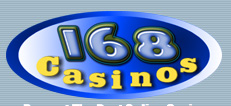Blackjack - Insurance
Insurance
If the dealer's upcard is an Ace, the player is offered the option of taking Insurance before the dealer checks his 'hole card'.
The player who wishes to take Insurance can bet an amount up to half his original bet. The Insurance bet is placed separately on a special portion of the table, which usually carries the words "Insurance Pays 2:1". The player who is taking Insurance is betting that the dealer's 'hole card' is a 10-value card, i.e. a 10, a Jack, a Queen or a King. Because the dealer's upcard is an Ace, this means that the player who takes Insurance is essentially betting that the dealer was dealt a natural, i.e. a two-card 21 (a blackjack), and this bet by the player pays off 2:1 if it wins.
Example: The player bets $10, the cards are dealt, the player's hand is 19, and the dealer shows an Ace. The player takes Insurance by betting an additional amount of $5. The dealer checks her hole card and sees that it's a 10-valued card. The player loses his $10 bet on his blackjack hand, but he wins the insurance bet, so the player gets 2:1 on his $5 Insurance wager and receives $10 (on top of the $5 which is returned to him). Note that the player came out even on that round (i.e. did not lose any money).
Conversely, a player may win his original bet and lose his Insurance bet. Let's say we have the same situation as above except this time the dealer's hole card is not a ten, but rather a seven. In this case the player instantly loses his $5 Insurance wager. (All Insurance wagers are settled as soon as the dealer turns over her 'hole card', before all else.) But the player wins his $10 bet. Note that the player made a net profit on that round.
Of course, a player may lose both his original bet and his Insurance bet.
Insurance is a bad bet for the player who has no direct knowledge nor estimation (e.g. through card counting) of the dealer's 'hole card' because Insurance has a negative expected value for the player. Insurance always pays 2:1, while the actual odds of a dealer having a blackjack are usually very close to 9:4 (2.25:1) depending on the amount of decks being used. Even for the player who has been dealt a natural (a two-card 21) it is unwise to take Insurance. In such a case, the dealer usually asks the player "Even money?" This means that instead of 3:2, the player with the natural accepts to be paid off at 1:1. Thus it is exactly the same thing as buying Insurance, losing the Insurance bet and getting paid 3:2 on the natural. (If the player with the natural refuses the offer of "even money", and the dealer turns over his hole card to make a natural (a blackjack), it is a tie and the player's bet is returned to him.). Even the most basic card counting can make insurance a profitable bet. For example in a seven player game, if no player is holding any ten card, it is actually correct to make the insurance bet, since the chance of the dealer drawing a ten card are increased significantly to pass the 2:1 odds paid.
In casinos where a hole card is dealt, a dealer who is showing a card with a value of Ace or 10 may slide the corner of his or her facedown card over a small mirror or electronic sensor on the tabletop in order to check whether he has a natural. This practice minimises the risk of inadvertently revealing the hole card, which would give the sharp-eyed player a considerable advantage. In countries, such as Australia, no face down card is dealt to the dealer until it is his turn to play his hand. This makes the game more complicated since the dealer must keep track of busted split bets since if the dealer ends up drawing a BlackJack the players lose only their original bets and do not lose double or busted split bets.
From Wikipedia's
Contents - Blackjack |
